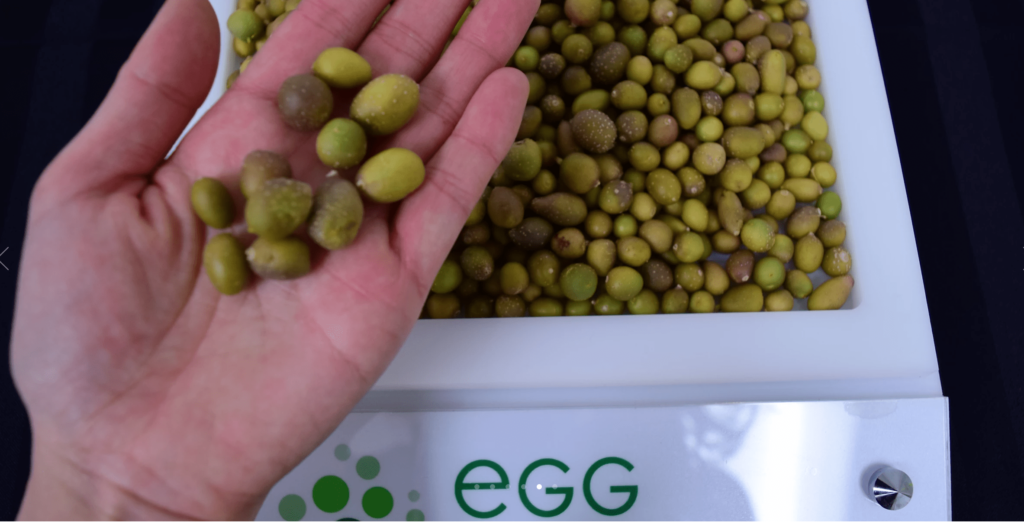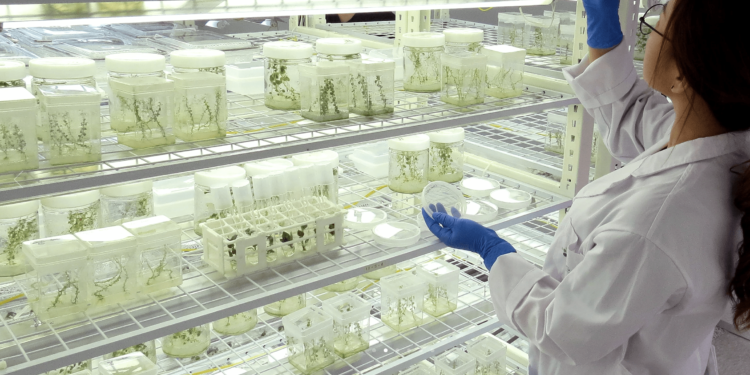The prolonged COVID-19 pandemic period has brought the critical issue of food security to the forefront. Unstable food supply, prices, production, and distribution, decreasing household income, economic recession, curbs on export-import, and ongoing health crisis were some of the issues that led to a collapse in the food supply chain globally. The food security crisis is further set to worsen in the future with climate change and increasing population.
There is a need to grow safer, sustainable food, and for that, Agricultural Innovation through technology could be the solution. Korean startup E Green Global, an Agricultural Biotech Company, has scored the world’s first-ever success in commercializing the Microtuber Technology (MCT). The technology allows the large-scale supply of disease-free seed potatoes throughout the year in a culture facility like a plant factory.
What is the need for MCT in food production?
Among various food resources, plant resources that can produce food essential for human survival are categorized as food crops. Rice, wheat, corn and potatoes are considered the world’s four largest food crops based on productivity. The global market for potatoes is estimated to be worth around $140 billion, and has steadily grown over the past 10 years with the average growth rate of 3% per year (IndexBox 2019). It is expected to grow even further with the increasing world population.
The problem, however, is that it is very difficult to secure enough amount of high-quality seed potatoes with the production system we currently have. According to an analysis by the Food and Agriculture Organization of the United Nations (FAO), the productivity for potatoes have increased by 46.2% over the past 50 years, which is notably lower than that of corn (158.8%), wheat (135.5%) and rice (109.6%).
It is crucial to increase the supply of disease-free seed potatoes (seed potatoes with the risk of viral or fungal infections removed)—which needs to be replaced regularly—in order to increase the productivity and production sustainability of potatoes.
EGG’s Microtuber Technology allows the large-scale supply of disease-free seed potatoes throughout the year in a culture facility like a plant factory. Such success has placed EGG in an unrivaled position in the world’s food crop market, making it expand its trusted business in China, the United States and in Europe.

Technological Advantage of MCT
In the pre-existing seed potato production system, the harvest was limited to 1-2 times a year, and building a large-scale greenhouse was necessary for mass production. The productivity for self-seed production also decreased each time due to the lack of a smooth supply of disease-free seed potatoes. Moreover, it takes about five years to produce certificated seed potatoes using the preexisting Minituber (weighing about 5-30g). Over the past decades, there has been active research around the Microtuber (weighing about 1g) technology to reduce this time, but no one had successfully commercialized it due to limits such as high loss rate during storage and low germination and seedling emergence rates.
Through technology optimization, EGG succeeded in fast and stable supply of disease-free seed potatoes. It can produce seed potatoes with remarkably low risk of infection by putting the entire production process in a controlled environment in the lab, and accelerate the production cycle by drastically reducing the proliferation steps necessary to produce certificated seed potatoes. With such technology, EGG could reduce the time needed to produce certificated seed potatoes from 5-6 years to less than 2 years.
EGG not only has overcome the limits of pre-existing Microtuber with its own technology, but also is establishing a system that can supply disease-free seed potatoes at an even lower price; its seed potatoes are highly economical as they can be produced throughout the year and sowed directly without additional seedling process requiring the greenhouse.
“EGG’s MCT technology is significant because it not only helps alleviate the hunger by boosting productivity and production sustainability of potatoes, but also helps secure crops resilient to the climate and environmental change by drastically reducing the time needed to produce the certified seed,” said Inwon Park, an Associate of EGG.
EGG working for a better future, better world
EGG plans to continue the research in technology related to biological resources, application of technologies such as AI and SmartFarm in agriculture and integrated research on other food crops. The startup has secured KRW 10 billion (US$9.2 million) in a funding round from Yellow Dog-SK-KDB Social Value Fund.EGG plans to use the capital to expand its production facility to supply seed potatoes to its US and Chinese clients, with whom it has signed a contract worth KRW 100 billion (US$92 million).
The new round of financing will also be used for research and development (R&D) in areas including technology related to biological resources, application of technologies, such as AI and smart farming in agriculture and integrated research on other food crops.
“Nobody had been successful in commercializing the MCT for decades, yet EGG made it possible with its willpower and dedication to its mission of alleviating the world hunger. We look forward to the positive social impact EGG will make, with its proven technology and the strong, devoted team.” – Hyunjoo Je, CEO/Managing Partner of Yellowdog.
The global market for AgTech or AgFoodTech (agriculture + technology)— is growing rapidly, valued at around $7.8 trillion (AgriFoodTech Investing Report 2019, AgFunder). And to achieve the United Nations Sustainable Development Goal 2 (“SDG 2”), which aims to achieve “zero hunger” by 2030, agriculture innovation is the only option. Role of Agri-tech companies like EGG will be a game-changer in decreasing food problems of the world.
Also Read,
- World Environment Day: Korean startups that are helping live a cleaner & sustainable lifestyle
- Agri-tech startup N.Thing secures $2.2 million in Series A funding
- Korean startup DamoGO’s app helps reduce food waste by selling ‘unsold’ food from restaurants, stores & farms
- GreenS Systems: The Korean startup that provides smart safety solutions for food, disaster and air-quality management






